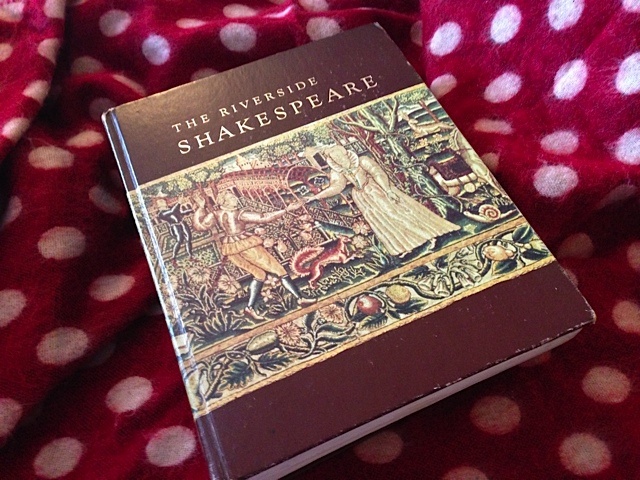Shakespearing #1 by David Foley
A few weeks ago—late night, between books—I pulled the collected plays of Christopher Marlowe off my shelf and started reading Edward II. I hadn’t read it, or any Marlowe, since high school, and what struck me most about it now was how un-Shakespearean it is. Having first encountered anti-Shakespearean theories in a book that claimed Marlowe wrote Shakespeare’s plays, it now seemed bizarre that anyone could think the same man wrote, say, Edward II and Richard III. It was hard at first to name what was different or, at the risk of slighting Marlowe, what was missing, but I missed the pleasure of Shakespeare, and that made me wonder what the pleasure of Shakespeare consists of. Marlowe writes a good line (a “mighty” one, according to Ben Jonson), but the range of those lines, at least compared to Shakespeare, is narrow, a vision intensely focused. So I guess what I missed in Marlowe was the wide-rangingness of Shakespeare, the way his eye and ear go everywhere, doggily darting over the landscape. I opened my Riverside Shakespeare at random and landed on Phebe’s speech to Silvius in As You Like It:
Thou tell’st me there is murder in mine eye:
’Tis pretty, sure, and very probable,
That eyes, that are the frailest and the softest things,
Who shut their coward gates on atomies,
Should be called tyrants, butchers, murtherers!
Now I do frown on thee with all my heart,
And if my eyes can wound, now let them kill thee.
Now counterfeit to swound; why, now fall down,
Or if thou canst not, O, for shame, for shame,
Lie not, to say mine eyes are murtherers!
Here are the pleasures: a kind of joyous compression of image, so that images are wrapped in images (“Who shut their coward gates on atomies”); language that, for all its poetry, is continually, dramatically active (“Now counterfeit to swound; why, now fall down”); and a loving attentiveness to character as revealed in speech (“’Tis pretty, sure, and very probable”). You could argue that Shakespeare’s love for the intricate image is sometimes at odds with his love of character. Would dim-bulb Phebe really say, as she does later in the speech, “[L]ean upon a rush,/The cicatrice and capable impressure / Thy palm some moment keeps”? But this just adds to the main pleasure of Shakespeare: a sense of overabundance, perhaps the overabundance that made Ben Jonson wish that Shakespeare could sometimes have been persuaded to “put a cork in it.” (I take this to be a reasonable translation of Jonson’s Latin phrase.)
The other day, perhaps because my mind was dwelling on these things, I impulsively bought a copy of James Shapiro’s Contested Will, a wonderful book as it turned out. Shapiro does a good, compassionate job of debunking the anti-Shakespeareans, but he also brought me back to some of my own concerns about Shakespeare. He sifts the evidence to show us Shakespeare the working playwright, all of whose plays were created in the crucible of a living theatre, a circumstance that makes nonsense and deep offense of anti-Shakespearean theories. I wanted to try to get at Shakespeare working and learning, and also to get at what makes Shakespeare Shakespeare. And I thought if I started at the beginning and read the plays in order (to the extent that anyone can say what that order was), I might begin to see some answers to my questions.
This is a naïve task, and I’d like to go about it naïvely, just reading and responding to the plays, avoiding outside commentary as much as possible, looking only for what strikes me, at the mercy of my own tastes and prejudices. And trying to keep each posting down to 600 words. Still it makes for a long project. Thirty-seven plays means we’ll be well into 2015 by the time we get to The Two Noble Kinsmen. Will I make it to the end?
Well, one step at a time. See you next week with Henry VI, Part 1.
David Foley is a playwright and fiction writer living in Brooklyn. His plays include Cressida Among the Greeks, Paradise, Nance O’Neil, The Murders at Argos, A Hole in the Fence, and Sad Hotel, among others. His novel The Traveler’s Companion is available on Amazon. He teaches at New York University.




Leave a comment